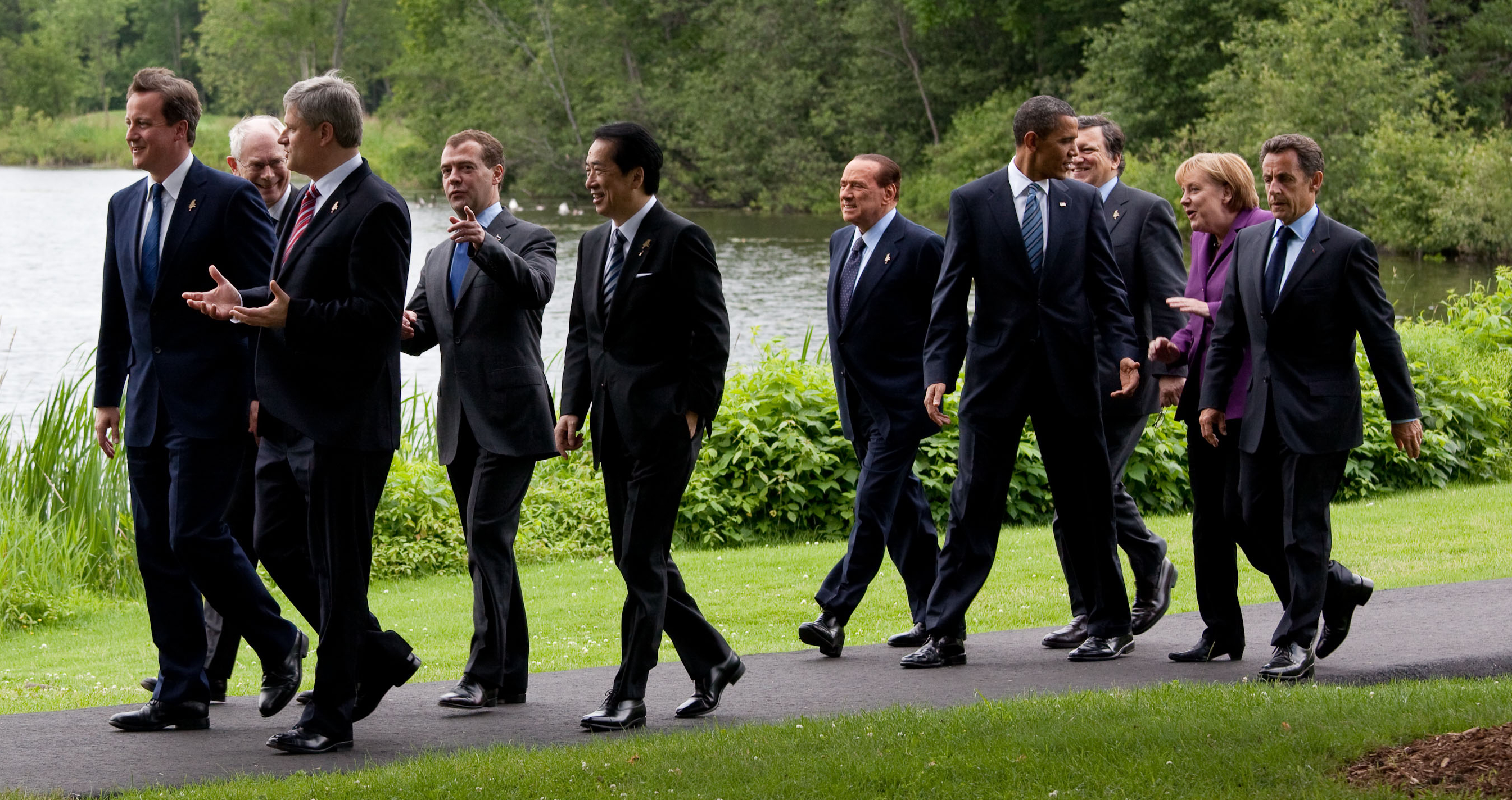Please help rabble.ca stop Harper’s election fraud plan. Become a monthly supporter.
Stephen Harper is traipsing around Europe again, doing what he loves most — traipsing around Europe. It is now pretty obvious what the PM has up his sleeve for his future. Sooner rather than later, he will take up a position with some foreign institution or organization. You can take it to the bank.
To the surprise of all and sundry — surely including himself — Mr. Harper has at long last found a niche where he is comfortable in his own skin: almost anything that doesn’t include Canada and its irksome political scene. On the home front, there’s nothing but aggravation — poor polls, smart-aleck judges, tenacious opponents, ungrateful veterans, unruly Senators, pesky reporters, embarrassing colleagues, intransigent First Nations, hysterical environmentalists. Abroad he finds admiration, respect, camaraderie, and no questions asked. Here he’s a beleaguered politician. There he’s a statesman. Who could resist?
Watching the PM flitting from one foreign capital to the next or interacting here in Canada with visiting VIPs on faraway matters like maternal health, we’ve witnessed a different man from the one we’ve known during his entire previous public lifetime. No longer the stiff, scripted martinet with the tight, cramped smile, Stephen Harper abroad has become a man of the world, relaxed, confident, pleasant rather than severe, natural rather than robotic.
Until now, our Prime Minister has actually looked like Tom Flanagan’s creepy description of him: “Suspicious, vindictive, prone to sudden eruptions of white-hot rage,” someone who treated others as “disposable.” Think of him in Question Period accusing his most trusted aide, Nigel Wright, of being a liar and deceiver. Think of him assuring a convention of party loyalists that he couldn’t care less what critics said about anything. His body language and facial expressions have always reflected these merciless sentiments. But when he’s meeting with other heads of government to talk about Ukraine or with Belinda Gates and UN Secretary-General Ban Ki-Moon to talk about maternal health, (despite his open disdain for the UN), he becomes a different man.
Before VIPs meet other VIPs, they receive briefing notes. But I’ve never been sure they’re ever read. Take the session with Harper and Belinda Gates, when he waxed passionately about the importance of getting vaccines. Stephen Harper, our Stephen Harper, actually declared that “We know, we scientifically know, what vaccinations and immunizations have done for us.” Parents, he admonished, “Don’t indulge your theories, think of your children and listen to the experts.” I analyzed the tape of that conversation very rigorously and I can report that at no time did Ms. Gates snicker or giggle. If she knew that Mr. Harper’s entire reign has been based on his contempt for experts and science, she did a remarkable job of suppressing it.
When his distinguished guests so lavishly praised Stephen Harper for his leadership on maternal health, were they aware that his leadership on foreign aid left something to be desired? Indeed, with Mr. Harper at his side, the UN Secretary-General emphasized that the foreign aid goal of 0.7 per cent of GDP remained a vital one. Was he informed that under the Harper government, Canada’s aid performance is expected to fall from a meagre 0.34 per cent in 2010 to a derisory 0.26 per cent in 2015. The McLeod Group’s Ian Smillie reminded me this would be an historical worst for Canada. With humanitarian crises raging in Syria, Southern Sudan, Somalia, Central African Republic, Mali, to name only a few, think of the mothers and children who will never have the opportunity to benefit from the PM’s maternal and child health initiative.
When the elite meet, they seem unquestioningly amiable towards each other (except for Vladimir Putin, of course, where anything goes). Videos of last month’s NATO meeting to discuss Ukraine again show an animated, personable Stephen Harper smiling repeatedly as he chin wags with his peers. He had just come from Kiev where he had insisted that Russia must “completely reverse” its occupation of Crimea, an unrealistic and unhelpful demand that no other NATO leaders echoed. But this critical disagreement was of no apparent consequence either to him or to his pals with whom he was so chummy and comfortable.
And then of course there’s Israel, where Stephen Harper is welcomed as a conquering hero. Not even Theodore Herzl, the father of Zionism, would be embraced so wholeheartedly. After all, Mr. Harper has made himself Israel’s single most steadfast champion in the entire world, unconditionally supportive of just about everything and anything the Netanyahu government does. So for those Israelis who oppose any kind of rapprochement with the Palestinians under any conditions, as Benjamin Netanyahu does but many Israelis fervently do not, Stephen Harper’s their man. Pretty heady stuff.
For Stephen Harper, not being in Canada is clearly the best of all possible worlds. He can even join other world leaders at solemn D-Day ceremonies on the beaches of Normandy without facing the wrath of protesting veterans in Ottawa who say he’s betrayed them. Why would he ever come back?
This article originally appeared in The Globe and Mail.
Image: Wikimedia Commons




